Embarking on the journey to illuminate your yoga studio, you step into a realm where light not only reveals but also transforms. “How to Choose Lights for Your Yoga Studio: A Comprehensive Guide” emerges as your essential beacon, casting light on the nuances that make a yoga studio not just seen but felt. In the delicate dance of shadows and illumination, every luminary decision crafts the studio’s soul, setting the stage for a journey inward, where light guides the way.
Enter Tom, a sage in the LED lighting domain since 2005, who has woven his vast knowledge into the very fabric of this guide. With expertise honed over years of exploration and innovation, Tom presents a distilled essence of wisdom to navigate the myriad choices in LED strip lights and LED neon flex. This guide isn’t just an accumulation of facts—it’s a testament to Tom’s journey through the LED landscape, offering a compass to those seeking to imbue their yoga spaces with the right light.
As we unveil the secrets to selecting the ideal lighting ensemble, we invite you to delve deeper and explore beyond the lumens and the watts. Here, lighting transcends its functional role, becoming an integral part of the yoga experience, shaping moods, directing focus, and echoing the energy of each asana and breath. With Tom’s seasoned insights leading the way, you’re poised to transform your studio into a sanctuary of light, where every beam is an invitation to introspection and every shadow a contour of calm.
Now, let us step forth, with hearts open and minds attuned, into the luminous world of yoga studio lighting. Through the pages that follow, discover how light can be harnessed, shaped, and colored to complement the yoga journey, enhancing every stretch, every pose, and every moment of stillness. With Tom’s guidance as our beacon, we embark on this enlightening path together. Let’s dive right in, embracing the radiant possibilities that await.
Deciphering the Lighting Needs for Yoga Spaces
Balancing Natural and Artificial Light
Crafting the perfect ambiance in your yoga studio begins with striking a balance between natural and artificial light, a dance of illumination that profoundly impacts the space’s energy and the practitioners’ experiences. Daylight, with its ever-changing quality, brings vitality and a sense of connection to the natural world, essential for daytime classes that thrive under its dynamic influence. As the day transitions into night, artificial light steps in, offering the consistency and controllability crucial for evening practices, ensuring the studio’s ambiance remains undisturbed and conducive to focus and meditation.
The strategic use of dimmable artificial lighting allows for a seamless transition, echoing the natural dimming of the day and maintaining an ambiance that resonates with the class’s tempo and intention. Embrace LEDs for their versatility, enabling you to adjust brightness and color temperature to complement the time of day or specific yoga practice, enhancing the studio’s harmony and balance.
Understanding Color Temperatures and Their Effects on Mood
The journey into the realm of color temperatures unveils their intrinsic power to influence mood and atmosphere within your yoga studio. The right color temperature can transform the space, creating environments that range from warm and inviting to cool and invigorating. Warm lights, radiating hues reminiscent of the golden hours, invite relaxation and introspection, making them ideal for meditative or gentle yoga styles. In contrast, cooler lights, echoing the zenith of daylight, energize and focus, supporting more vigorous practices.
Incorporating adjustable color temperature lighting solutions empowers you to tailor the studio’s ambiance to the yoga style or class mood, enabling a fluid and responsive environment that nurtures every practice.
The Role of Brightness and Dimming Capabilities
Light intensity is a pivotal element in shaping the yoga studio’s ambiance, with the power to energize or soothe. Brightness levels that adapt to the class style or time of day can enhance focus during dynamic sequences or foster calm in restorative practices. Advanced lighting systems offering dimming capabilities provide the versatility to fine-tune the studio’s atmosphere, aligning it with the practitioners’ needs and the class’s essence.
Prioritizing dimmability also respects individual light sensitivities, ensuring a welcoming and comfortable space for all. Embrace lighting solutions that allow for nuanced control, creating an environment where light supports the journey inward, enhancing mindfulness and presence.
Selecting the Ideal Lighting Fixtures
The choice of lighting fixtures in a yoga studio is as crucial as selecting the right paint color or yoga mats—it sets the tone, influences mood, and can significantly enhance the overall experience. It’s about finding that perfect balance between aesthetics, functionality, and the unique energy of your yoga space. Let’s delve deeper into how specific lighting fixtures can transform your studio.
Overhead Lighting Choices for Ambient Light
Overhead lighting is the cornerstone of your studio’s illumination, providing the base layer of light that sets the initial mood. When selecting these fixtures, consider both their luminous efficacy and how they complement your studio’s architectural features and design ethos. Pendant lights can add an element of elegance and focus, while recessed lighting offers a more discreet, even distribution of light that can make spaces feel larger and more open.
For studios aiming for a more organic, earthy feel, consider fixtures with natural materials or warm tones. Conversely, studios with a modern, minimalist design might benefit from sleek, geometric fixtures that provide clean lines and hidden illumination. The key is consistency and coherence, ensuring that your ambient lighting supports the intended atmosphere of your space.
Accent and Task Lighting to Enhance Experience
Accent and task lighting in a yoga studio aren’t just functional—they’re an opportunity to elevate the space, highlighting architectural details and art pieces or even guiding the flow within the studio. These lighting choices can direct attention, create intimacy, or emphasize certain areas, enriching the studio’s narrative and ambiance.
Strategically placed track lighting can spotlight artwork or sacred symbols, while under-cabinet or shelf lighting can illuminate props or merchandise without overwhelming the space. In areas where detailed tasks are performed, such as reception desks or retail areas, focused task lighting ensures functionality without disrupting the studio’s tranquil vibe.
When integrating accent and task lighting, it’s essential to consider how these layers interact with your ambient lighting. The goal is to create a harmonious interplay that enhances the spatial experience, making the studio not just a place to practice yoga but a sanctuary that engages and uplifts.
Innovative Lighting Solutions: LEDs, Strips, and Projectors
Innovative lighting technologies like LED strips and projectors offer creative and flexible solutions that can adapt to various needs and occasions. LED strips, for example, can be installed along pathways, under benches, or around architectural features, offering subtle guidance and accentuation without intruding on the overall aesthetic. They can create a soft, ambient glow that enhances the studio’s architecture and mood.
Projectors, on the other hand, offer a dynamic canvas for thematic elements or visual meditations, transforming walls or ceilings into moving artworks that can complement the practice, whether it’s a starlit sky for a nighttime meditation or a forest canopy for a nature-inspired session.
These innovative lighting solutions not only serve functional purposes but also open up new possibilities for engagement and interaction within your studio, allowing you to create unique and memorable experiences that resonate with practitioners.
Color Dynamics in Yoga Studio Lighting
The strategic use of color in lighting can profoundly influence the atmosphere and energy of your yoga studio, echoing the practice’s intrinsic connection to mindfulness and well-being. By understanding and leveraging the psychological effects of different hues and color temperatures, you can create an environment that enhances the yogic journey.
Psychological Impacts of Color Choices
Color has the power to evoke emotion, trigger memories, and influence perception. In the context of a yoga studio, where environment and ambiance are paramount, the choice of lighting color can be transformative. Soft, cool tones like blue and green can create a soothing oasis, perfect for practices centered on relaxation and stress relief. These colors are known to reduce anxiety and promote a sense of peace, and they are ideal for meditation or gentle yoga.
In contrast, warmer tones such as amber or soft orange can create a vibrant, energizing environment that stimulates and invigorates, ideal for more dynamic and physically challenging classes. These colors evoke warmth and enthusiasm, encouraging movement and expression.
When choosing colors, it’s essential to consider the emotional and psychological context of your classes and how different colors can support or enhance the intended atmosphere, creating a cohesive and supportive environment for all practices.
Color Temperature Selection for Desired Ambiance
The concept of color temperature extends beyond mere aesthetics—it’s a vital tool in shaping the studio’s ambiance and supporting the practices within. Warm lighting, with its lower color temperature, mimics the serenity of dawn or dusk, creating a welcoming and calming environment. This type of lighting is particularly beneficial for evening classes focusing on relaxation or studios emphasizing restorative or gentle yoga practices.
Conversely, higher color temperatures associated with cool lighting can invigorate and clarify, fostering a sense of alertness and focus, which is ideal for morning classes or more active yoga styles. The ability to adjust color temperature can also allow for a dynamic space that can evolve throughout the day or cater to specific class types, offering practitioners an environment that truly resonates with their practice.
In conclusion, selecting the ideal lighting fixtures, understanding the impact of color choices, and utilizing innovative lighting solutions are crucial steps in creating a yoga studio that not only supports the physical aspects of yoga but also enriches the spiritual and emotional experience. By carefully considering these elements, you can craft a space that truly embodies the essence of yoga, offering a sanctuary for growth, reflection, and connection.
Embracing Energy Efficiency and Eco-Friendliness
As yoga practitioners seek harmony with themselves and their environment, your studio can embody these values through energy-efficient lighting choices. LEDs stand at the forefront of this movement, offering a sustainable alternative that significantly reduces energy consumption and operational costs. These lighting solutions not only minimize the studio’s environmental footprint but also provide superior light quality that enhances the practice space.
Adopting energy-efficient lighting reflects your commitment to environmental stewardship, resonating with eco-conscious practitioners and reinforcing the holistic ethos of yoga. By choosing sustainable lighting options, your studio not only conserves resources but also cultivates an atmosphere of mindfulness and responsibility.
Implementing Smart Lighting Controls for Energy Conservation
Smart lighting controls represent a fusion of technology and sustainability, enabling your yoga studio to optimize energy use while providing an adaptable and responsive lighting environment. These systems offer the convenience of automated adjustments, responding to occupancy levels, natural light availability, or preset schedules, thereby ensuring efficient operation and reducing waste.
The integration of smart controls enhances the user experience, allowing for seamless transitions between different lighting scenarios to complement class activities or times of day. By embracing these advanced solutions, your studio can achieve a balance between energy efficiency, functionality, and aesthetic appeal, creating an enlightened space that supports both the planet and the practice of yoga.
Designing the Lighting Layout
In crafting the optimal lighting layout for your yoga studio, you create more than just a functional space; you sculpt an environment that supports and enhances the practice of yoga. Strategic light placement, combined with the right choice of fixtures and controls, ensures an even distribution of illumination, eliminating distractions and creating a focal point for concentration and relaxation.
Ensuring Uniform Light Distribution
Achieving uniform light distribution involves a delicate balance, blending various light sources to eliminate shadows and glare while maintaining a consistent intensity that nurtures focus and calm. This harmonious lighting environment supports the fluid movements of yoga, guiding practitioners through their sequences without visual disruptions and enhancing their connection to the practice.
Layering different types of lighting and utilizing reflective surfaces can amplify natural light during the day and provide gentle, even illumination in the evening. This thoughtful approach ensures that your studio remains a sanctuary of light, conducive to exploration and growth on the yoga journey.
Zoning for Flexibility and Control
Zoning introduces a dynamic element to your studio’s lighting design, allowing you to segment the space according to its various functions or the different styles of yoga practiced within. Each zone can be individually controlled, offering the ability to customize the lighting based on specific needs, whether it’s the focused intensity required for a power yoga session or the subdued ambiance suited to meditation and relaxation.
This strategic segmentation enhances the studio’s versatility, accommodating a wide range of practices and preferences and ensuring that each area is optimally lit for its intended use. By implementing zoning, you create a responsive and adaptive lighting environment that mirrors the diversity and depth of the yoga practice itself.
Leveraging Natural Light for a Serene Environment
Embracing natural light within your yoga studio not only illuminates the physical space but also connects practitioners to the natural rhythms and cycles of the outside world. This connection fosters a deeper sense of harmony and presence, enhancing the overall yoga experience.
Maximizing Daylight Benefits
Harnessing the benefits of daylight involves thoughtful planning and design. By considering the studio’s orientation and incorporating elements like large windows and skylights, you can maximize the infusion of natural light, enriching the space’s energy and ambiance. Adjustable treatments and reflective materials help modulate and distribute this light, ensuring it complements rather than competes with your studio’s artificial lighting.
Incorporating natural light not only elevates the aesthetic and spiritual experience of yoga but also aligns your studio with sustainable practices, reducing reliance on artificial lighting and promoting a healthier, more stimulating environment for practice.
Integration of Skylights and Large Windows
Incorporating skylights and large windows transforms your studio into a canvas for the natural world, inviting the sky and landscape into your practice space. These architectural features not only provide abundant daylight but also create visual connections to the outdoors, deepening the sense of peace and grounding within the studio.
Strategically placed, these windows and skylights can enhance the studio’s thermal comfort and energy efficiency while offering practitioners a visual and spiritual connection to the world beyond the mat, reinforcing the unity of self, practice, and environment inherent in yoga.
Tailoring Lighting to Yoga Practices
Yoga, a practice rich in diversity and tradition, offers various styles, each with its unique rhythm and energy. The ambiance, significantly influenced by lighting, can transform a standard session into an extraordinary experience. Tailoring your studio’s lighting to accommodate different yoga styles is not just about aesthetics; it’s about enhancing the practice, promoting mindfulness, and creating a space where each breath and movement feels intentional.
Adaptable Lighting for Various Yoga Styles
The lighting needs of a dynamic Vinyasa class differ vastly from those of a gentle Yin session. In high-energy classes like Ashtanga or Vinyasa, brighter and cooler lighting can invigorate practitioners, mimicking the energizing effect of daylight and supporting a vigorous flow. Conversely, softer, warmer lighting suits the reflective nature of Yin or Restorative yoga, creating a sanctuary where practitioners can delve deep into relaxation and meditation.
Investing in versatile lighting systems that offer variable brightness and color temperatures can significantly benefit your studio, providing the flexibility to adjust the ambiance to suit the class’s mood or time of day. Additionally, granting instructors the autonomy to control lighting can lead to a more personalized and responsive yoga experience, allowing the ambiance to reflect the class’s pace and energy.
Mood Lighting for Relaxation and Meditation Classes
Creating a conducive environment for relaxation and meditation transcends basic lighting; it’s about crafting an oasis of calm. The strategic use of mood lighting can profoundly affect the atmosphere, making the transition from physical activity to stillness seamless and intuitive. Soft, muted colors like blues and greens evoke a sense of serenity, while gentle dimming mimics the natural progression toward dusk, signaling the body to unwind and prepare for rest.
Incorporating elements like candles or soft lamps can introduce a flicker of life and warmth into the room, offering a focal point for meditation or simply enhancing the room’s tranquil vibe. Such thoughtful touches not only elevate the aesthetic appeal of your studio but also deepen the practitioners’ engagement with their practice, encouraging a more profound and fulfilling yoga experience.
By understanding and implementing these nuanced lighting strategies, you can transform your yoga studio into a versatile space that adapts to the varied styles and intentions of its practitioners, ultimately fostering a deeper connection to their practice and enhancing their overall yoga journey.
FAQs: Your Questions Answered
How can I balance natural and artificial light in my yoga studio?
To achieve a harmonious balance, utilize dimmable artificial lights that complement the influx of natural light throughout the day. Consider window treatments that allow you to modulate sunlight and opt for LED fixtures that can mimic daylight’s clarity or sunset’s warmth, depending on your studio’s orientation and class schedules.
What specific color temperatures are recommended for different yoga practices?
For dynamic, energy-boosting yoga styles, cooler color temperatures (5000-6500K) are ideal. They simulate midday light, promoting focus and vitality. Warmer tones (2700-3000K), resembling early morning or late evening light, are perfect for gentler, meditative practices, encouraging relaxation and introspection.
Can the brightness of yoga studio lighting affect practitioners’ focus and energy levels?
Absolutely. Adequate brightness levels enhance visibility for active styles, supporting safety and energy. Conversely, softer lighting can foster a calming atmosphere for meditation or slower-paced classes. Dimming capabilities are essential for tailoring the lighting ambiance to the practice’s pace and mood.
Are there innovative lighting solutions that can enhance a yoga studio’s ambiance?
Yes, LED strips, smart lighting systems, and projectors offer creative and flexible lighting solutions. LED strips can outline architectural features or offer gentle pathway illumination, while smart systems allow for preset or adaptive ambiance changes. Projectors can create immersive, thematic environments for special classes or events.
How do I choose the right overhead lighting fixtures for my studio’s ambient light?
Select overhead fixtures based on your studio’s design aesthetic and functional needs. Pendant lights or chandeliers can add character, while recessed lighting offers a clean, modern look. Ensure fixtures provide even, diffused light and consider options with adjustable settings for flexibility.
What role does accent lighting play in a yoga studio?
Accent lighting can highlight decorative elements, architectural features, or focal points, adding depth and character to your space. It can also be functional, providing additional light where needed without disrupting the overall ambiance.
How does the integration of skylights and large windows benefit a yoga studio?
Skylights and large windows maximize natural light, enhancing energy efficiency and connecting indoor spaces with the outdoor environment. They can improve practitioners’ mood and focus, offering dynamic lighting changes that reflect the time of day and season.
How should I tailor my studio’s lighting for relaxation and meditation classes?
Opt for warmer, dimmer lighting options that create a serene atmosphere. Utilizing lights with adjustable color temperatures and brightness can help ease the transition from wakefulness to relaxation, supporting a meditative state.
What safety considerations should I keep in mind when designing my yoga studio’s lighting?
Adhere to local building codes and regulations, ensuring all fixtures are properly installed and maintained. Include accessible and clearly marked emergency lighting and exits, and choose lighting that minimizes glare and shadows to prevent accidents or discomfort.
How can smart lighting controls contribute to energy conservation in a yoga studio?
Smart lighting controls allow for automated adjustments based on occupancy, time of day, or specific activities, optimizing energy use. They can also provide the flexibility to create different ambiances for various classes or events, enhancing the overall experience while being mindful of energy consumption.
Conclusion: Elevating Yoga Practices through Thoughtful Lighting Design
As we conclude this insightful journey through the nuances of selecting the ideal lighting for your yoga studio, we recognize the pivotal role that quality illumination plays in enhancing the studio’s ambiance, energy efficiency, and overall wellness experience. This is where Unitop, a luminary in the realm of LED innovation, steps into the spotlight. Renowned as one of China’s leading manufacturers, Unitop specializes in an extensive array of LED strip lights and LED neon flex, providing bespoke lighting solutions that resonate with the serenity and focus intrinsic to yoga.
Unitop’s commitment to excellence is reflected in the meticulous craftsmanship and cutting-edge technology that define our product range. Whether it’s creating a tranquil retreat for meditation, a vibrant space for dynamic yoga practices, or ensuring energy efficiency without sacrificing style, Unitop’s LED solutions offer unmatched versatility and reliability. By choosing Unitop, you align with a brand that is synonymous with quality and innovation in the LED lighting industry.
For yoga studio owners and designers who aspire to transcend the ordinary, Unitop invites you to explore the transformative potential of our LED lighting solutions. Should you have any questions or bespoke requirements, our team of experts is at your disposal, ready to illuminate your path. Contact us today and let Unitop empower you to create a yoga studio that is not only a haven of well-being but also a testament to sustainable and inspired design. Embrace the Unitop difference and let your studio shine in its best light.

Tom is now the Sales Manager of Unitop (China) Co., Limited. He has been in the LED Lighting industry ever since 2005. He is an expert in sales & marketing, and factory management. He likes bodybuilding, and he is also a crazy Apple Fan! He is a hard-working guy and loves to learn and try new things.
Email: tom@unitopledstrip.com WhatsApp: +86-18680307140

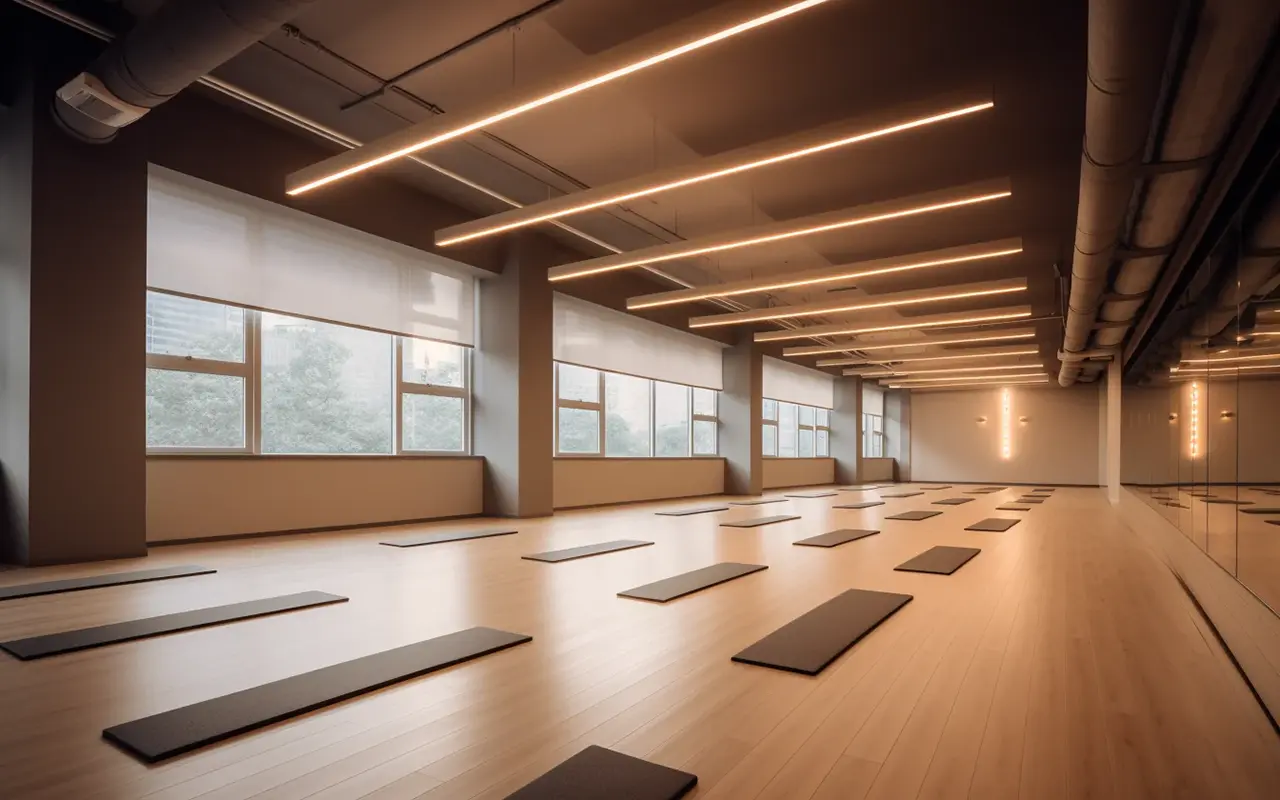
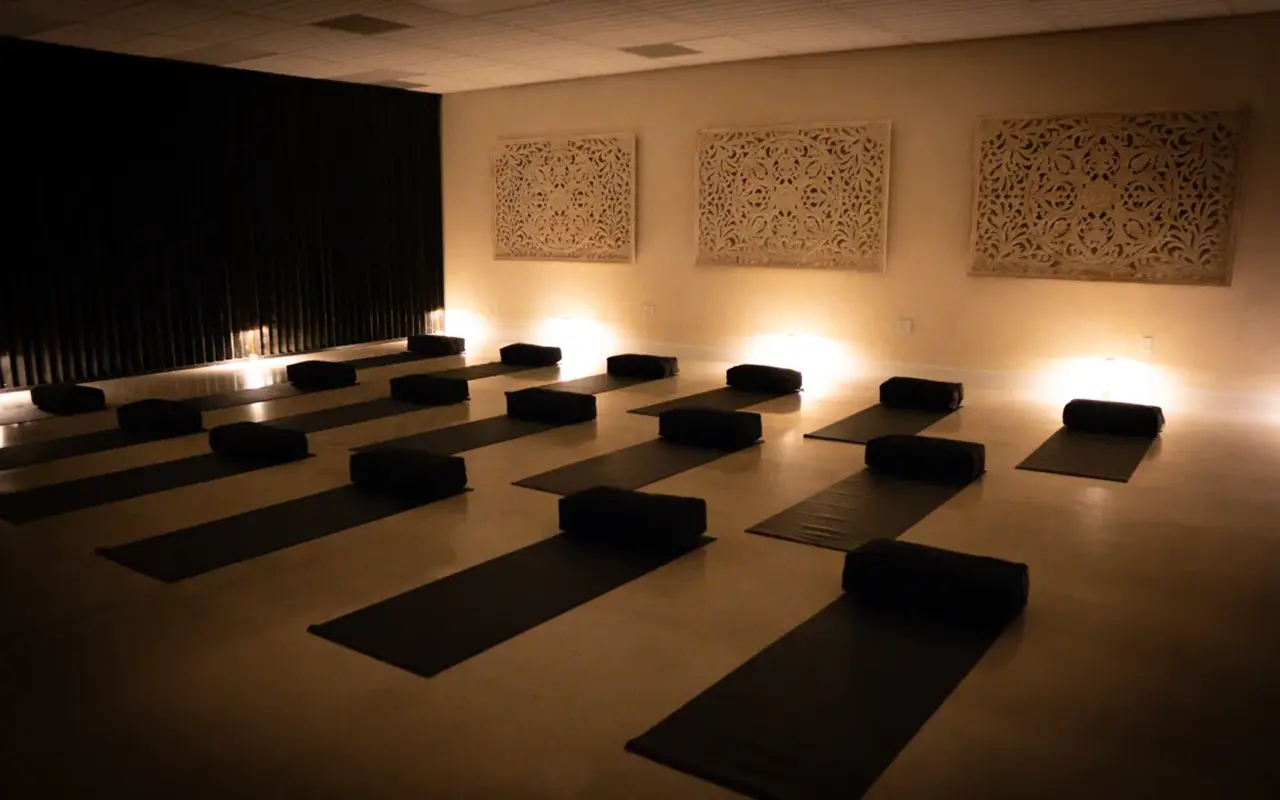
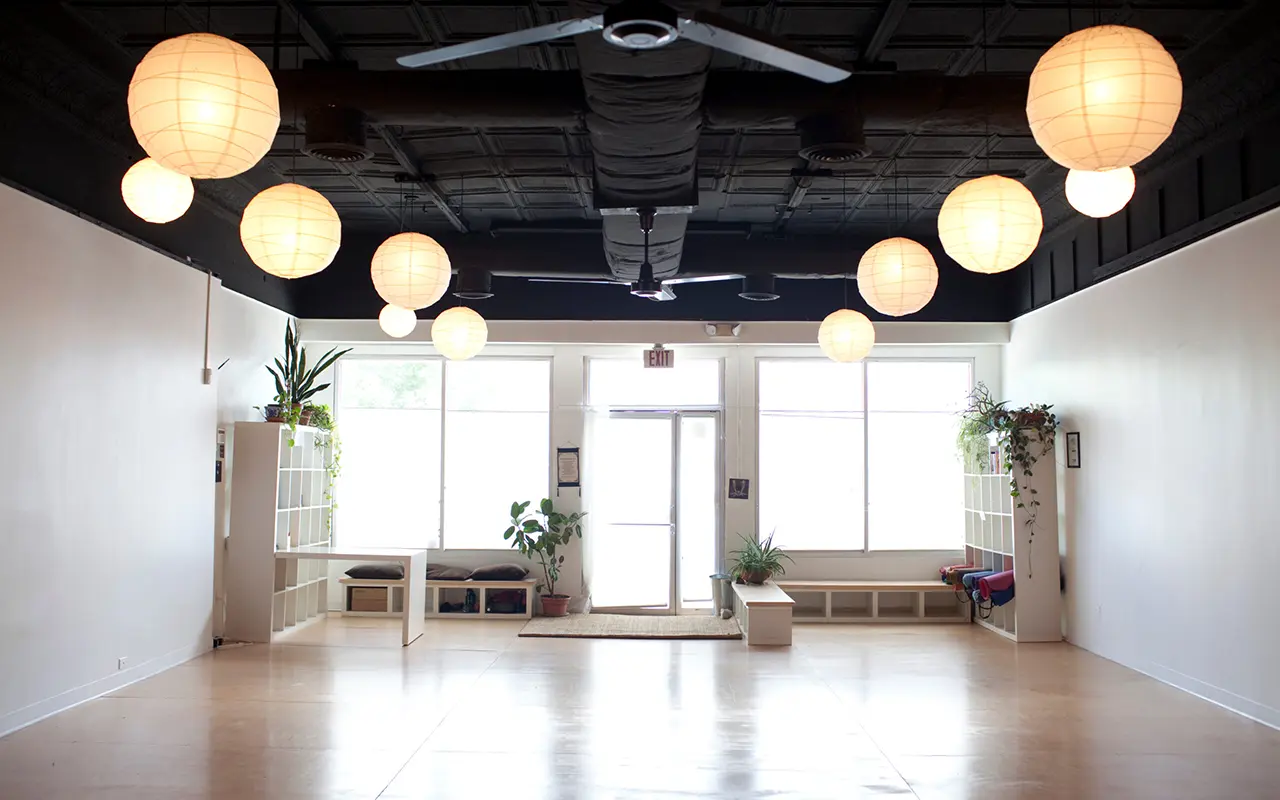
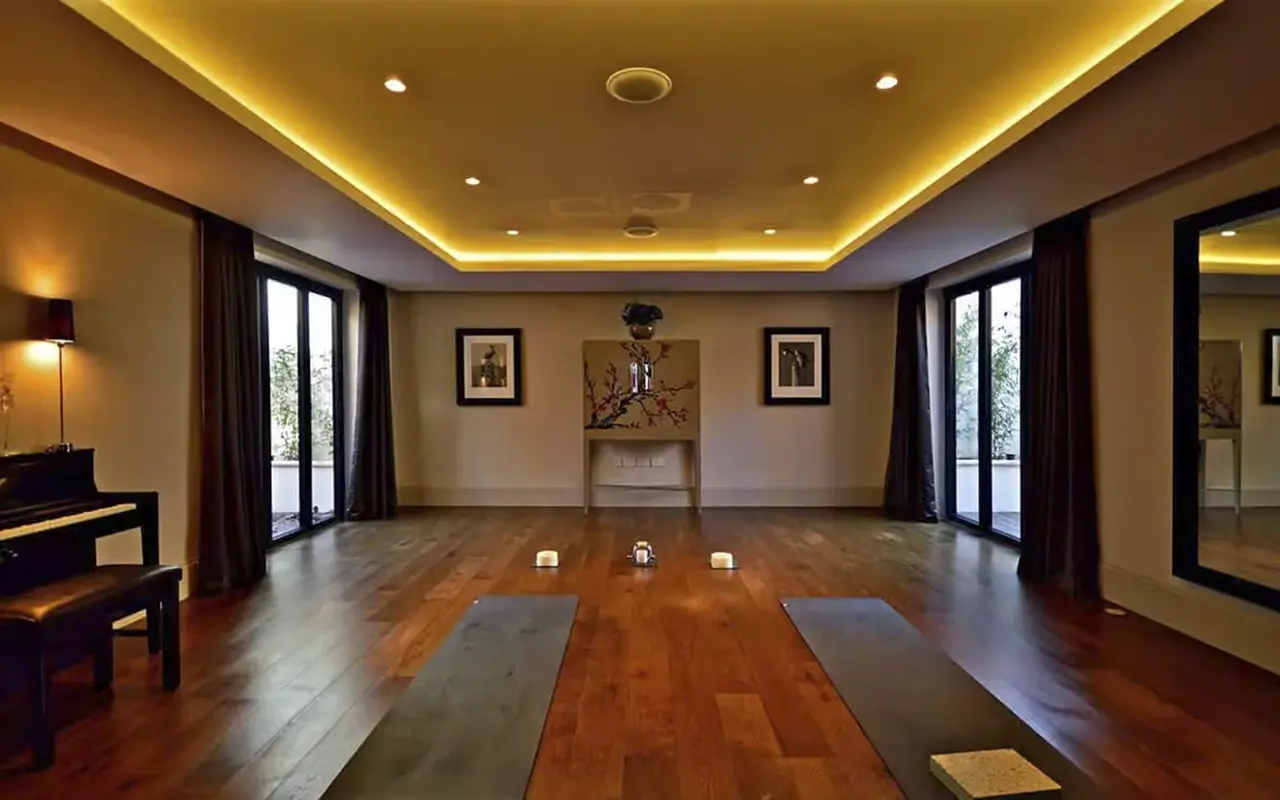
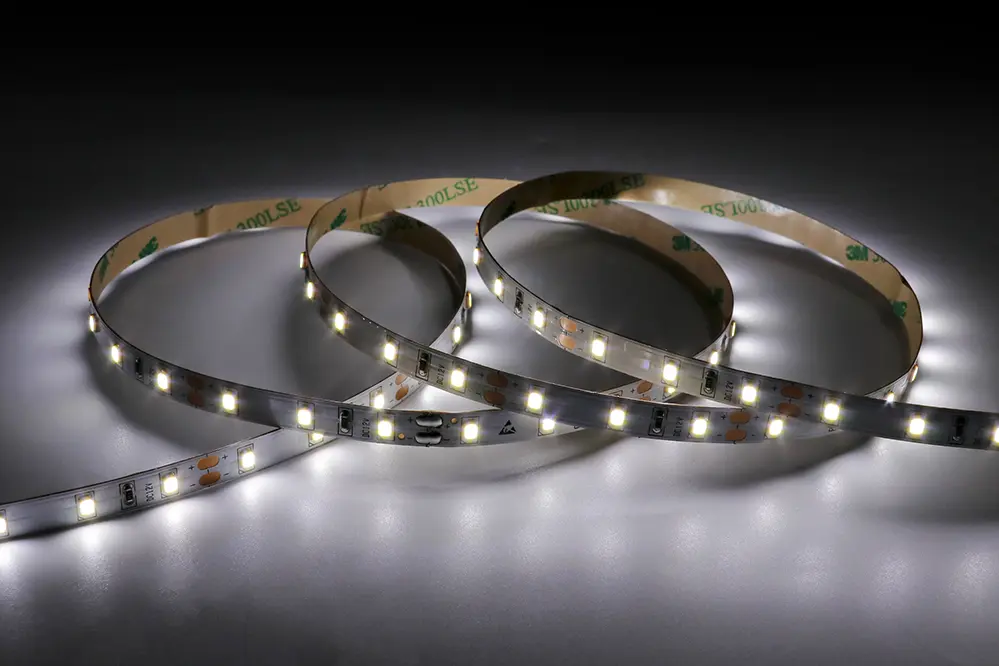
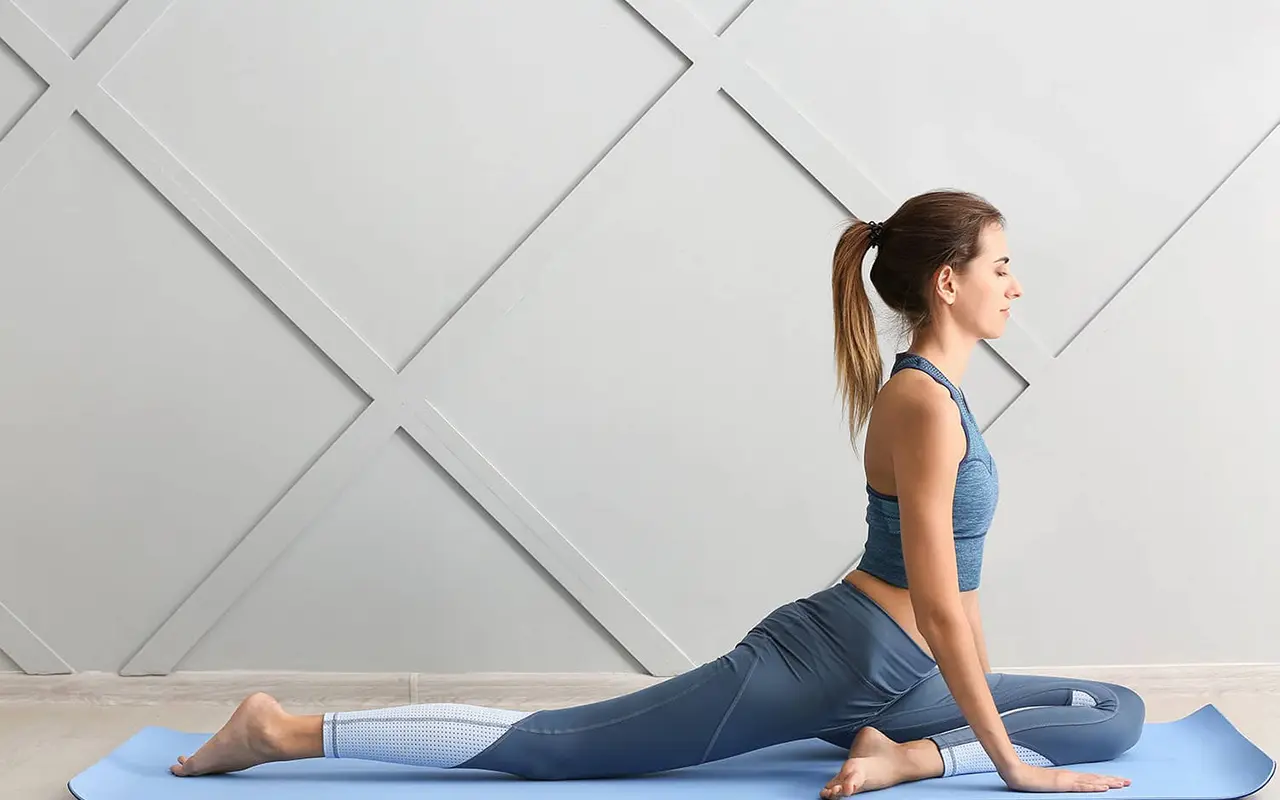
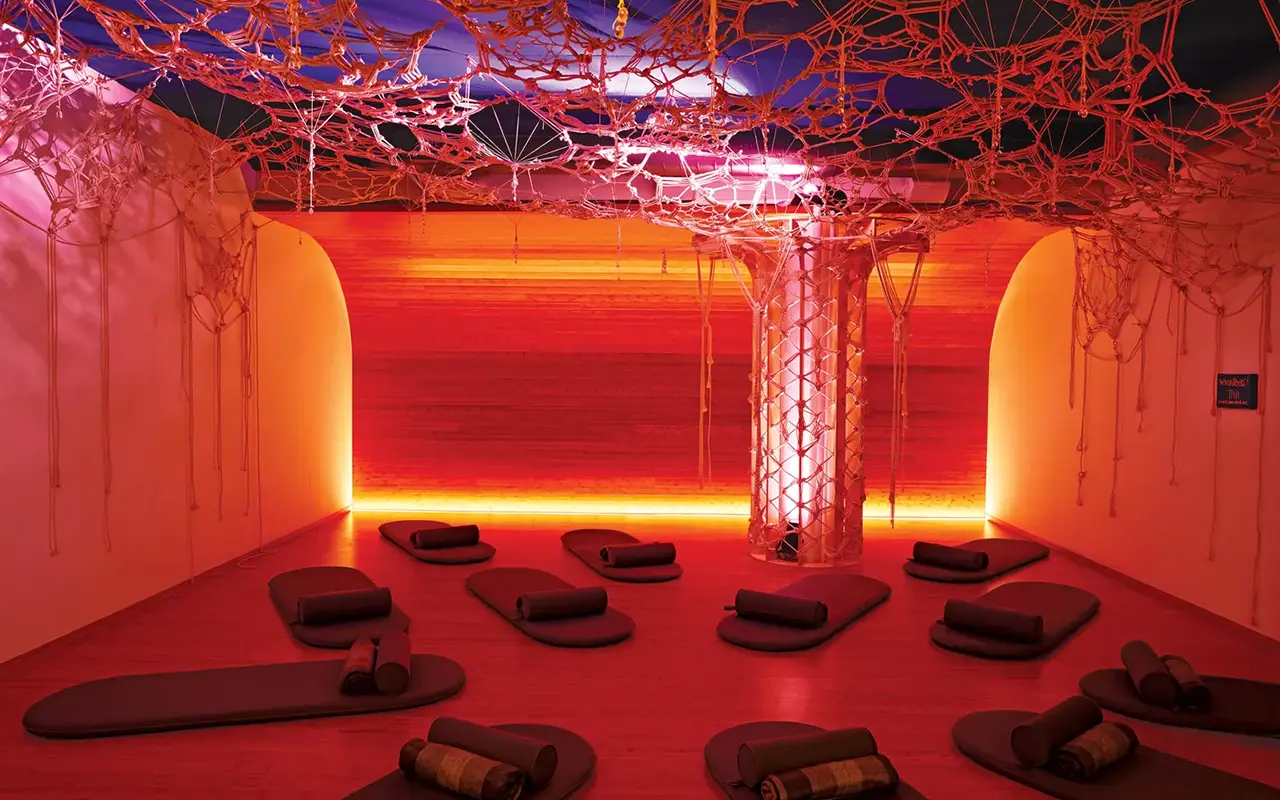



Leave a Reply
Want to join the discussion?Feel free to contribute!